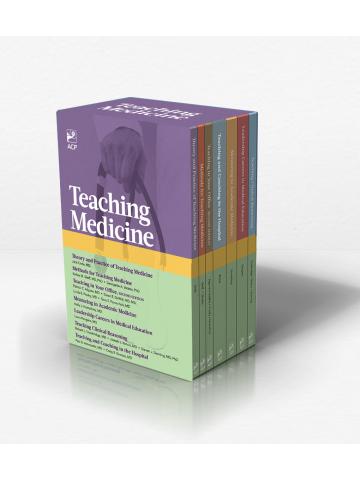
Teaching Medicine Series
SKU:
teaching-medicine-series-pk
Informative, practical, and engaging, the Teaching Medicine Series is an excellent resource for all medical faculty interested in improving their teaching, learning more about educational tools and resources, and advancing their careers in medical education. Available as a complete set or for individual purchase, this seven-book series features:
Teaching Clinical Reasoning— including web extras
Theory and Practice of Teaching Medicine
Methods for Teaching Medicine
Teaching in Your Office, Second Edition
Teaching and Coaching in the Hospital
Mentoring in Academic Medicine
Leadership Careers in Medical Education

